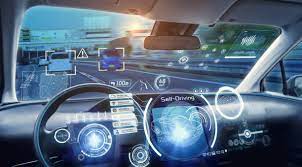The world of transportation is on the brink of a revolutionary transformation with self-driving cars becoming increasingly prevalent. Autonomous vehicles have the potential to make our roads safer and transportation more efficient, but building and deploying them comes with unique challenges. One of the keys to success in this space is the application of DevOps principles, ensuring the continuous delivery of reliable and secure self-driving car systems.
In this blog, we'll explore how DevOps is reshaping the development and deployment of autonomous vehicles, highlighting the challenges and best practices specific to this cutting-edge industry.
Understanding the Autonomous Vehicle Ecosystem
Before delving into DevOps practices, it's essential to grasp the complexity of the autonomous vehicle ecosystem. It comprises a multitude of components, including sensors, perception systems, control algorithms, connectivity, and human-machine interfaces. These components must work harmoniously in a safety-critical environment.
Challenges in Autonomous Vehicle Development
-
Safety-Criticality: Autonomous vehicles must operate flawlessly to ensure passenger and pedestrian safety. Any failure or glitch can have dire consequences, making rigorous testing and validation paramount.
-
Data-Intensive: Self-driving cars generate vast amounts of data from sensors and cameras. Managing and processing this data in real time is a significant challenge.
-
Regulations and Compliance: Autonomous vehicles are subject to strict regulatory frameworks that vary by region. Complying with these regulations while innovating is a delicate balance.
-
Hardware and Software Integration: Integrating hardware and software components seamlessly is crucial for the vehicle's operation. Any disconnect can result in system failures.
Applying DevOps Principles to Autonomous Vehicles
-
Collaboration and Communication: Encourage cross-functional collaboration between software engineers, hardware engineers, data scientists, and safety experts. Clear communication is vital for understanding and addressing complex issues.
-
Automation: Implement automation at every stage of the development pipeline, from code testing and validation to hardware integration and deployment. Automated testing of control algorithms, sensor fusion, and real-world simulations are essential.
-
Version Control: Leverage version control systems like Git to manage the various software and hardware components of autonomous vehicles. This enables traceability and rollbacks when issues arise.
-
Continuous Integration and Continuous Deployment (CI/CD): Establish robust CI/CD pipelines for the rapid integration and deployment of software updates. Frequent testing and validation are critical, and any issues should trigger immediate alerts.
-
Security: Prioritize cybersecurity by implementing security best practices, such as penetration testing, encryption, and secure software development processes. Protecting autonomous vehicles from cyberattacks is paramount.
Simulations and Testing
Due to safety concerns, real-world testing alone isn't sufficient for autonomous vehicles. Extensive simulations are necessary to validate algorithms and control systems. Simulations help identify edge cases and rare scenarios that are challenging to replicate in the physical world.
Compliance and Regulations
Navigating the regulatory landscape is crucial. Collaborate with regulatory bodies and stay updated on evolving standards and requirements for autonomous vehicles. Demonstrating compliance with safety standards is a key part of the process.
DevOps is transforming the autonomous vehicle industry, enabling the continuous delivery of safe, reliable, and innovative self-driving cars. By fostering collaboration, embracing automation, and prioritizing security and compliance, organizations in this space can navigate the unique challenges and help bring the future of transportation closer to reality.
As self-driving cars become an integral part of our roadways, DevOps practices will continue to evolve to meet the demands of this exciting and dynamic field. The journey towards fully autonomous vehicles may be complex, but with the right DevOps mindset and practices, it becomes an achievable and transformative endeavor.


No comments yet